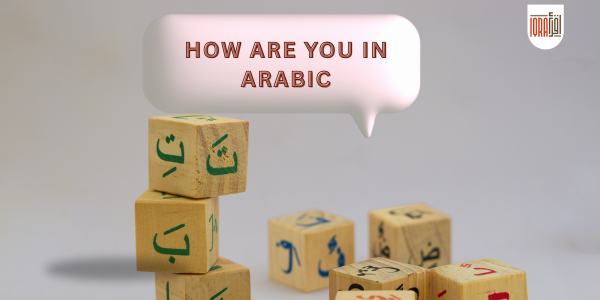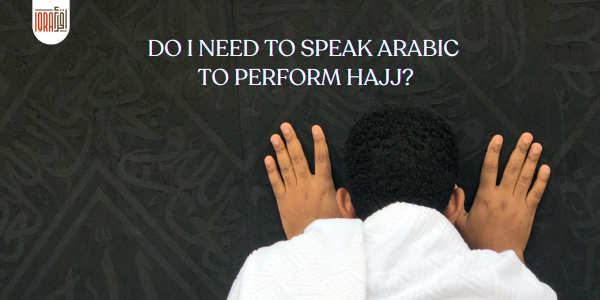In a world full of expressions, few phrases hold as much emotional weight and spiritual beauty as thank you in Arabic. It goes beyond words. It reflects a way of life, a state of gratitude deeply embedded in the Islamic faith and Arabic culture.
Gratitude in Islam isn’t just a nice thing—it’s a fundamental part of faith. The Prophet Muhammad ﷺ said, “He who does not thank people does not thank Allah.” Imagine the ripple effect of your simple “thank you” in Arabic carrying blessings across hearts.
This post goes beyond translation. It dives into the heart of what it means to say thank you in Arabic—with context, emotion, and etiquette. Whether you’re going for a Job, learning Arabic for Islamic studies, or simply engaging with Arabic-speaking brothers and sisters, this phrase can light up your path.
Before we begin, if you’re serious about mastering Arabic, sign up for our Arabic language curriculum or join our immersive program designed for Muslims worldwide.
Thank You in Arabic
The most common way to say “thank you in Arabic” is shukran (شُكرًا). It’s simple, warm, and widely understood across the Arab world. But like many things in Arabic, there’s depth beneath the surface.
The root of shukran is sh-k-r (ش ك ر), which means gratitude, appreciation, or thankfulness. In the Quran, this root appears in verses encouraging believers to be thankful:
“If you are grateful, I will surely increase you [in favor]”
(Surah Ibrahim 14:7)
When you say shukran, you’re echoing this deeply spiritual act. It’s more than courtesy—it’s worship.
The Deeper Meaning of “Shukran”
“Shukran” is a beautiful, short phrase—but it carries profound meaning. It’s not just a polite reaction. It’s an intentional act of acknowledging a blessing or favor. In Islamic tradition, thanking others is a way of thanking Allah, since every good action comes through His will.
How to Respond to Shukran
The perfect reply to “shukran” is: ‘afwan (عفواً)—which means “you’re welcome.” But did you know it also means “pardon” or “grace”? It reflects a forgiving and generous spirit, one that overlooks the need for gratitude because it’s already been offered to Allah.
Other variations include:
- Ahla w sahla (أهلاً وسهلاً) – “With pleasure”
- La shukra ‘ala wajib (لا شكر على واجب) – “No thanks are needed for duty”
Other Ways to Say Thank You in Arabic
Arabic is rich and poetic. Here are other elegant ways to express gratitude, each adding its own nuance:
| Arabic Phrase | Transliteration | Meaning | Usage |
|---|---|---|---|
| شكرًا جزيلاً | Shukran jazilan | Thank you very much | Formal and polite |
| ألف شكر | Alf shukr | A thousand thanks | Very warm and enthusiastic |
| ممتن لك | Mumtanun laka/laki | I am grateful to you | Literary, emotional |
| أشكرك من قلبي | Ashkuruka min qalbi | I thank you from my heart | Intimate, heartfelt |
| بارك الله فيك | BarakAllahu feek | May Allah bless you | Islamic and spiritual |
| جزاك الله خيراً | Jazak Allahu khayran | May Allah reward you with good | Religious, deeply meaningful |
When you use these phrases correctly, you not only show etiquette, you build connection and earn reward.
Cultural Context of Saying Thank You in Arabic
In Arab societies, relationships matter deeply. A sincere thank you can open doors, soften hearts, and honor others. Often, gratitude is shown not just with words but with gestures, hospitality, and prayers.
If someone offers you coffee or helps with a task, your “shukran” might be followed by a heartfelt du’a. This is a sign of deep sincerity.
Why Muslims Should Master “Thank You in Arabic”
As Muslims, our lives revolve around gratitude. We say alhamdulillah dozens of times a day. Knowing how to say thank you in Arabic connects our daily speech with our faith.
Imagine learning Arabic not just as a language, but as a door to understanding the Quran and Sunnah.
👉 Start your Arabic journey today
How Gratitude Elevates Your Iman
Gratitude in Arabic isn’t just a habit—it’s a form of worship. In Arabic, there’s a difference between “shukr” (thankfulness with words) and “hamd” (praise with the heart and tongue). True believers embody both.
When you say shukran, it’s a chance to recognize Allah’s blessings through others. It turns mundane moments into spiritual ones.
The Prophet Muhammad’s ﷺ Approach to Gratitude
The Messenger ﷺ taught us to thank others explicitly and sincerely. He once said:
“Whoever is not grateful to people is not grateful to Allah.”
(Tirmidhi)
So next time someone helps you, remember—it’s a chance to please Allah through your gratitude.
Saying Thank You in Arabic in Daily Life
Here’s how you can weave “shukran” into your daily interactions:
- When receiving food: “Shukran, barak Allahu feek.”
- When being taught: “Jazak Allahu khayran for your time.”
- When offered help: “Shukran jazilan! May Allah reward you.”
Practice it with intention. It transforms every encounter into a moment of connection.
Islamic Duas of Gratitude in Arabic
Apart from “shukran,” try using these:
- اللهم لك الحمد والشكر – O Allah, to You belongs all praise and thanks.
- الحمد لله الذي بنعمته تتم الصالحات – Praise be to Allah by whose grace good deeds are completed.
These phrases elevate your gratitude beyond the moment—into your prayer life.
Avoid These Common Mistakes
- Saying “shukran” sarcastically
- Misusing “jazak Allah” casually without sincerity
- Using “thanks” (English) in a purely Arabic setting
Stay authentic and aware. Your thank you isn’t just a word—it’s a reflection of your heart.
Bonus Tip: Body Language Matters
In Arab culture, words are powerful, but your expression and body language carry weight too. A hand over the chest while saying shukran can melt barriers and build trust.
Six Common FAQs about Thank You in Arabic
What does “shukran” mean in Arabic?
It means “thank you,” derived from a root that implies gratitude and appreciation.
How do I say “thank you very much” in Arabic?
Say shukran jazilan (شكرًا جزيلاً) for extra warmth.
Is “jazak Allahu khayran” the same as thank you?
Not exactly. It means “may Allah reward you,” which is a spiritual response beyond mere thanks.
What’s the best response to shukran?
Say ‘afwan (عفواً) or la shukra ‘ala wajib (no need to thank me for a duty).
Can I use shukran in formal settings?
Absolutely. It’s polite and widely respected in all social and professional contexts.
Why is saying thank you important in Islam?
Because the Prophet ﷺ emphasized it as part of faith. Gratitude builds community and earns reward.
Conclusion: A Single Phrase with Eternal Impact
Whether you’re thanking your teacher, your host, or a stranger on the street—saying thank you in Arabic reflects your iman, manners, and heart. It’s an everyday phrase with a heavenly reward.
So don’t just say “thanks.” Say shukran—and mean it with your soul.
Now is the best time to master Arabic.
👉 Register for our powerful Arabic learning experience
Suggested Internal and External Links
Internal Links:
External References:





0 Comments
Oops comments are disabled